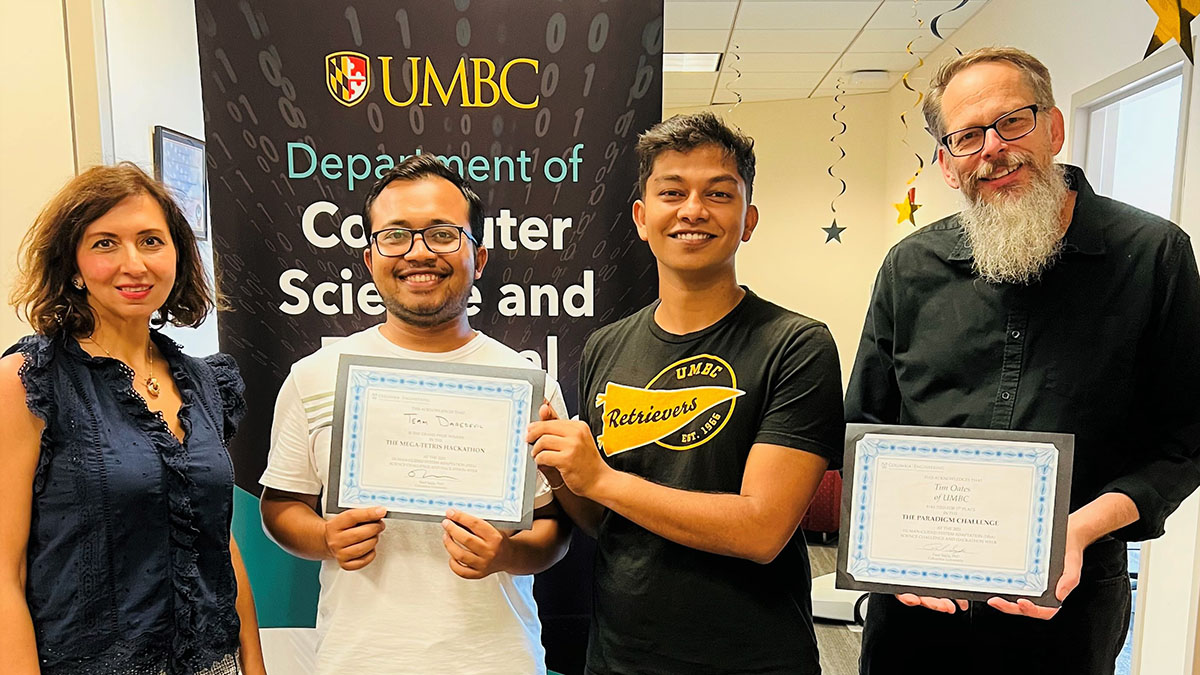CSEE faculty and grad students show expertise in human-guided system adaptation at Columbia University event
A team led by CSEE Professors Tinoosh Mohsenin and Tim Oates recently competed in three events at the Human-Guided System Adaptation (HSA) Science Challenge and Hackathon Week. The event, sponsored by the Columbia University Program for Human-Guided Machine Adaptation and the Army Research Lab, was held at Columbia the week of August 8-12 with the goal of extending the state-of-the-art in human-machine teaming. UMBC either won or was on the team that won all three events.
The first competition required the participants to prepare a five-minute video proposing a testbed for human-machine teaming that included specific drivers in the 2040+ Vision of the US Army: advanced intelligence, superhuman capabilities, and rapid technological change. Dr. Oates proposed using Nomic--a game in which a move corresponds to proposing and voting on changes to the rules--as the testbed. His video tied for first place with Duke University.
The second competition required the team to propose a sequence of five or more experiments in a single testbed to answer critical scientific questions in one of the following areas: Human-Guided Machine Learning, Tech Savvy, Hybrid Thinking, Rapid Adaptable Small Teams, and Distributed Teams. Dr. Mohsenin's team, led by ARL collaborator Dr. Nick Waytowich, won first place.
Finally, Ph.D. student Khondoker Murad Hossain and master's student Prakhar Dixit competed in a classic hackathon where the goal was to build a human-agent team to play Hybrid Team Mega-Tetris--a tetris variant in with multiple ongoing game screens and novel rules that can arise at any time, making it impossible for humans to play well without machine help. Khondoker and Prakhar won the tournament with a final score that was more than twice that of the second place team.